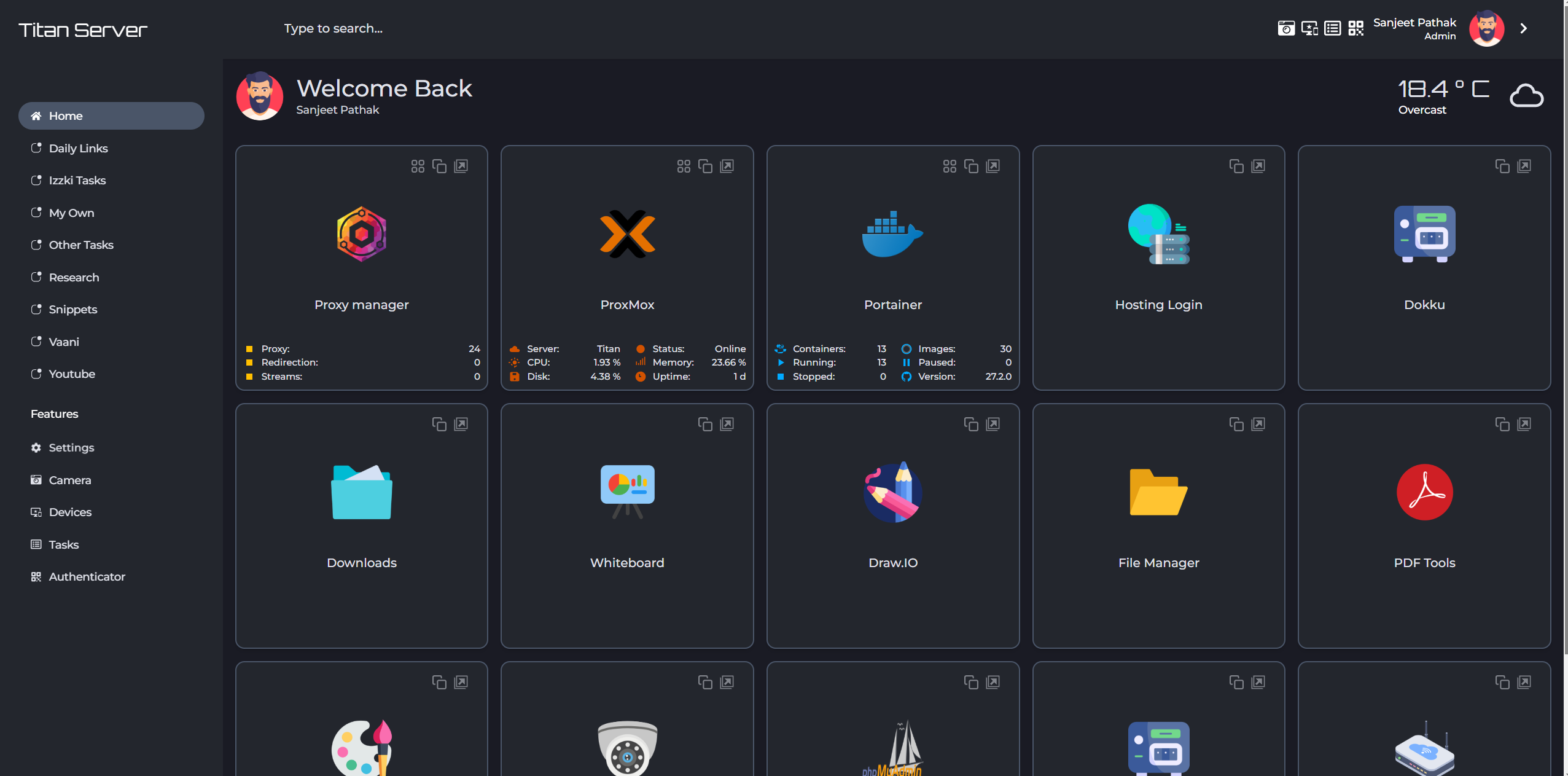




A powerful, self-hosted home lab dashboard built with the MERN stack.
Astroluma is a feature-rich, productivity oriented, user-friendly dashboard designed to help you manage multiple aspects of your daily tasks and services. Built with flexibility in mind, it allows you to control various features like task management, device monitoring, app integration, and real-time weather updates, all from a single platform. With its responsive design and dynamic configuration options, Astroluma offers a unique blend of customization, usability, and productivity.
Jan 21, 2025
- Astroluma v1.0.2 is released. Check the full changelog here
- Multi-User Support: Individual instances for each user
- Links Organization: Categorize and organize links with nested categories
- Featured Page: Showcase important categories and links
- Custom Domain Support: Works simultaneously with custom domains and IPs
- Network Device Management:
- IPv4 network device scanning
- Wake-on-LAN support
- Device status monitoring
- Todo List Manager: Create and manage multiple todo lists
- Snippet Manager: Store and organize code snippets
- TOTP Generation: Built-in Time-Based One-Time Password generation
- Custom Page Creation: Create and publish custom pages
- Stream Hub: Support for IP camera streams
- Weather Integration: Real-time weather updates
- Third-Party Apps:
- Bazarr
- FileBrowser
- FreshRSS
- GitHub
- HTML Code
- Heimdall
- Immich
- Linkace
- NextCloud
- Nginx Proxy Manager
- Portainer
- Proxmox
- Sonarr
- Speed Test Tracker
- TrueNAS Scale (Core untested)
- Uptime Kuma
- YouTube
- More coming soon!
- Custom Integration Support: Create your own app integrations
- Themes: 15 built-in themes with more in development
- Icon Pack Support: User configurable icon pack support. Find icons here
- Flexible Layout: Customizable sidebar and category placement
- Create a docker-compose.yml file. Best way to do this is to use the Astroluma Compose
Open Astroluma Compose and chose your preffered settings to generate your docker-compose.yml file.
Alternatively, create a docker-compose.yml similar to this:
version: '3.8'
services:
app:
image: sanjeet990/astroluma:latest
container_name: astroluma
##ports:
## - "8000:8000"
environment:
PORT: 8000
NODE_ENV: production
SECRET_KEY: a2c5f9a8b2d7e1a7f2c9c8d9b5f7a3d5
MONGODB_URI: mongodb://localhost:27017/astroluma
volumes:
- uploads_data:/app/storage/uploads
- uploads_apps:/app/storage/apps
depends_on:
- mongodb
restart: always
network_mode: host
mongodb:
image: mongo:6.0
container_name: astroluma_mongodb
ports:
- "27017:27017"
volumes:
- mongo_data:/data/db
restart: always
volumes:
mongo_data:
driver: local
uploads_data:
driver: local
If you're still unsure about creating your own config, please contact here.
- Bring up your stack by running:
docker-compose up -dIf using docker-compose-plugin:
docker compose up -dDetailed installation doc: Installation Guide
- Website: https://getastroluma.com/
- Live Demo: Coming Soon!
- Screenshots: https://getastroluma.com/screenshots
FAQ list is continuously being updated here.
A big shoutout to the people/projects who made this project possible. Check the credits here.
This project is licensed under the GNU GENERAL PUBLIC LICENSE, Version 3, 29 June 2007.
Contributions are welcome! Please feel free to submit pull requests.
Maintained by @Sanjeet990

